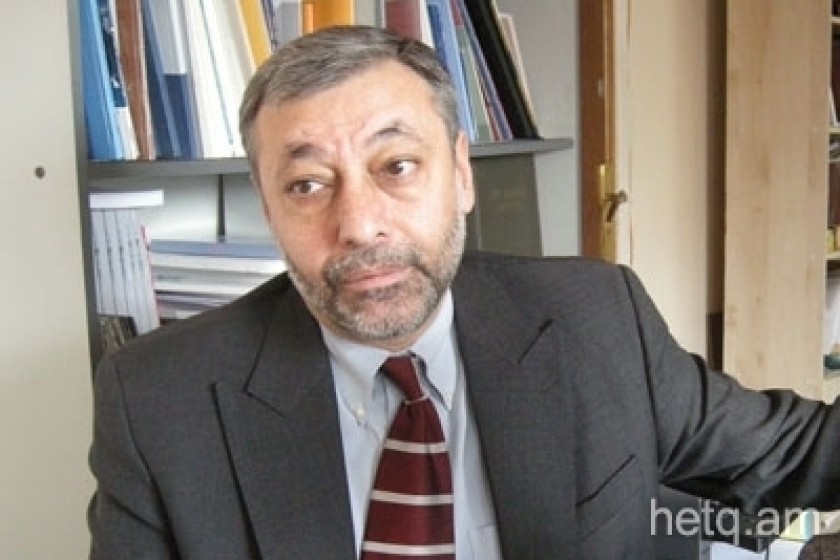
Proving the Unprovable
It has already been almost four months since the first Armenian ambassador to the UN, former foreign minister and former president of the ANM Council Alexander Arzoumanian was imprisoned. There are two issues facing the staff at the National Security Service who are working on his case. The first is to prove that Arzoumanian was involved in laundering money that had been obtained illegally.
The second is to prove, given that the first had been established, that this politician – with his rich political history and obvious oppositionist stance – is not a political prisoner.
The course of the investigation is being kept a secret, but one thing is now common knowledge – Arzoumanian's friend, Alexander Aghazaryan, has declared that he was the one who had given money to Arzoumanian as a favor, and that his money was legal. If this can be considered money laundering, then the majority of our country's citizens should be sent to jail, because everyone knows that most of the people in our prospering country survive by accepting money from friends and relatives who have moved abroad to work or live.
It is also known that some of our compatriots who have moved abroad are not involved, to put in mildly, in honest labor. Lately, there have been many news stories about robberies from large stores, machinations using credit cards, and other kinds of rackets. But many of our compatriots who receive sums from abroad have no doubt that their relatives are involved in honest jobs and would never suspect the illegal origins of some of that money. Here, once again, one has to prove the unprovable.
But our law enforcement officials do not investigate citizens who receive money from abroad – not because they feel pity for these people in today's difficult social conditions, but because in such cases they have to prove that the passive party, i.e. the recipient, was aware of the illegal origins of the money. In other words, if I get a stolen watch as a present, that does not make me a thief. One has to prove that I was aware that the watch was stolen when I accepted it.
It is a very difficult investigative job to establish the origins of money being laundered – documents need to be collected, testimonies and counter-testimonies must be recorded, which is, to put it mildly, beyond the capabilities of our law enforcement system. They are most used to using a gun in extreme cases, as they did with Zhirair Sefilyan, or by using illegal methods to extract confessions, which they do with so many of our citizens.
As far as I know, no illegal weapons were discovered when Arzoumanian's apartment was searched. Instead of confessing, the “suspect” demanded a face-to-face meeting with Levon Markos, whose money he allegedly laundered. The latter is not just beyond the abilities of the law enforcement system to arrange, but also of the authorities on the whole, because Levon Markos – who is a wanted man inArmenia– wanders freely about inMoscowand meets with representatives of theRussia's political elite. Anyone can arrange a meeting with him there, except for Armenian law enforcement officers.
His friends, supporters and people with an active political stance want to see Alexander Arzoumanian free, but those who want to see this happen the most are the workers at the National Security Service, who have found themselves in a ridiculous situation. As the task of proving the charge of money laundering gets more and more difficult, the issue of establishing that Arzoumanian is not a political prisoner is growing nearly impossible. Time is also against the NSS staff who must prove the unprovable. The presidential elections are coming nearer and it growing more obvious that Alexander Arzoumanian is indeed a political prisoner.
 Videos
Videos Photos
Photos
Write a comment